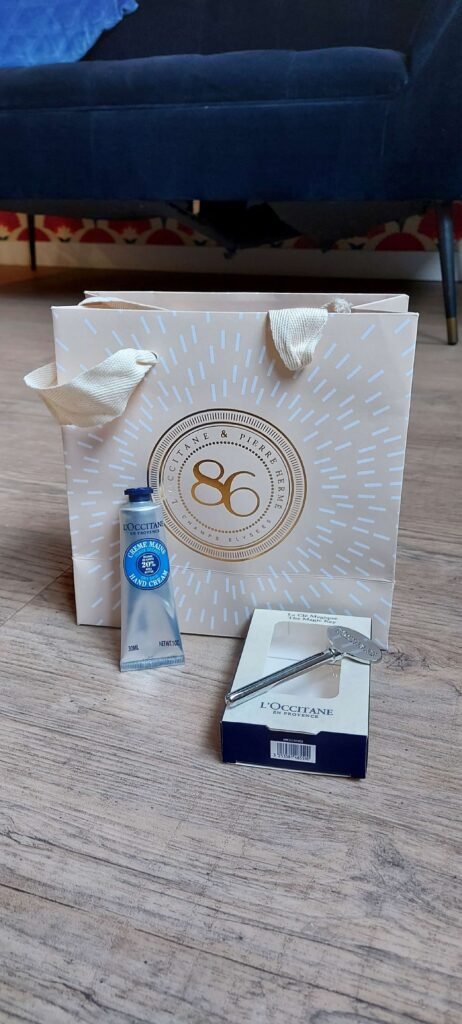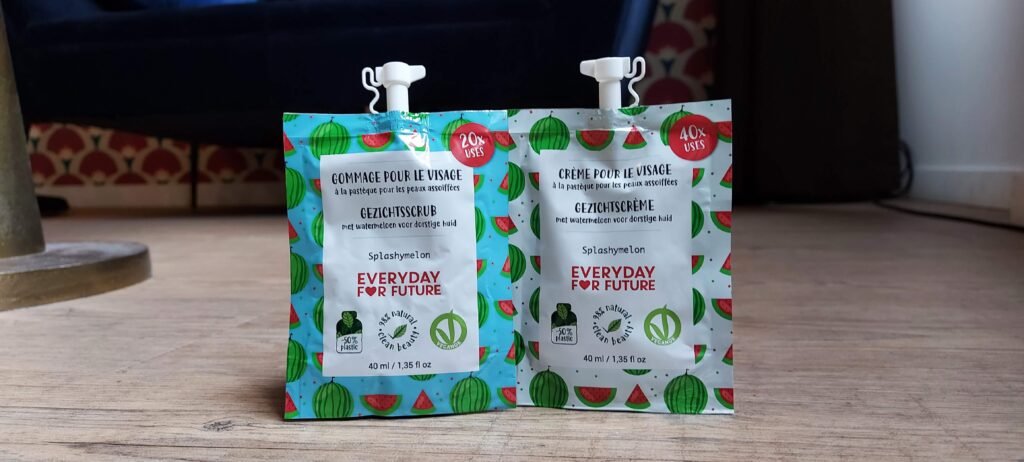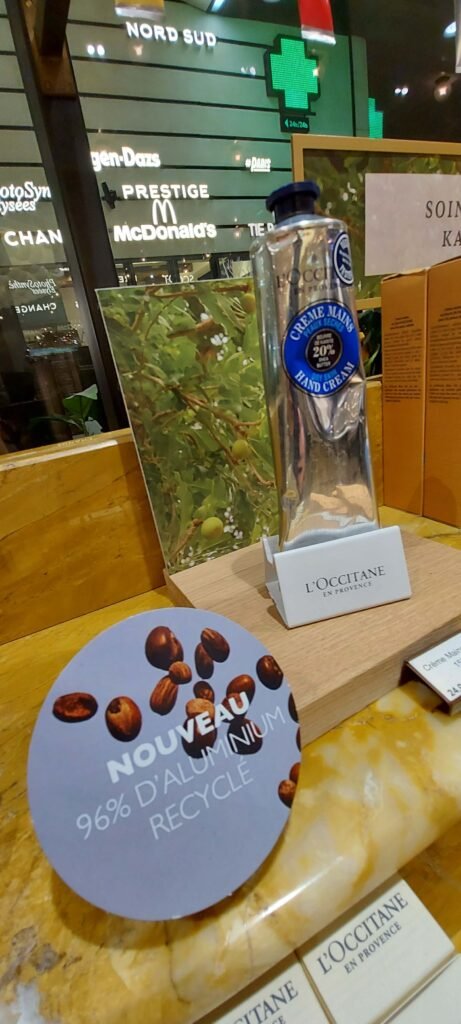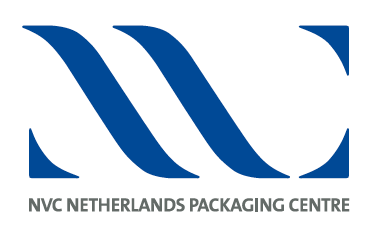The PUMA project is the collective effort of the business packaging community to end packaging as a global environmental problem. Based on the PUMA MANIFESTO, global developments in packaging and the environment are analyzed.
With the French edition of the Manifesto in hand, a PUMA team went to Paris in early 2022 and studied the packaging of cosmetics and body care products.
All this in the run-up to the PUMA World Congress, 3 May 2023 in Düsseldorf, Germany.
The Pack-Use-Empy (P-U-E) spiral

This is where it all starts: packaging the product, using the product, and ideally, using the product completely (and thus emptying the pack completely).
We find exuberant packaging (see, for example, the Sephora Holiday Vibes multi-package) and you might wonder how much residue is left in the plastic tube of a viscous product like Chanel aftershave balm.
That the industry is trying to do something can also be seen: l’Occitane‘s provides a special tool (the ‘magic key’) so you can use all of your favorite cream. Monoprix brings sachets ‘with 50% less plastic’ for facial care.
But the number of daily uses for different products does vary for the same pack by a factor of two (twenty times for the face scrub and forty times for the face cream).
Collect-Control and Backend

Emptying the pack is done at a different location and time than filling it. Thus, in general, a collection step and a processing step are needed that do not create environmental problems.
The Collect-Control step can only go well if the consumer is willing and able to participate. How and where should the emptied packaging be disposed of responsibly?
Information on packaging is not very unambiguous; for example, at Yves Rocher we find the French ‘triman logo’ fraternally next to the DSD logo.
A big issue is still how detailed the information to the consumer should be and to what extent ‘broadband’ backend processing will become available.
The same week that PUMA visited Paris, the French President Macron was pleased to report that Eastman Chemicals was going to build a processing plant in France to convert all kinds of collected plastic packaging, including that from cosmetics packaging, into new raw materials.

Eastman’s project has also received the support of an impressive number of international brands that see molecular recycling as a crucial tool for achieving ‘circularity’. LVMH Beauty, The Estée Lauder Companies, Clarins, Procter & Gamble, L’Oréal and Danone have signed letters of intent for multi-year supply agreements from this plant, which will have a capacity of 160,000 tons of collected plastic waste per year.
The Frontend
Whoever wants to pack a product, needs packaging materials. One way or another, these materials come from existing stocks that have not yet been touched by man, from renewable sources that have not yet been touched by man or from materials that have already been used and are supplied again from a backend process.

For the ‘organic’, plant fiber based packaging such as folding carton, it is apparently assumed that consumers recognize it as renewable. As such, this is not often listed on cosmetics packaging.
Challenged by this implicit environmental claim, the inorganic packaging materials are also beginning to stir at the Frontend.
How about a large display in a L’Occitane flagship store on the Champs Elysees that the aluminum tubes are made of at least 96% recycled aluminum?
With that, the elephant in the room of packaging materials has now also become visible: how much energy do we need to sustainably live up to these claims (and also those of a process like the Eastman Backend process mentioned above in the plastics sector)?

